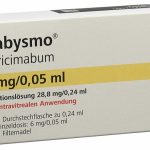Vertex Pharmaceuticals Misses Sales Estimates in Q3 Due to CF Treatment Demand

Vertex Pharmaceuticals missed sales estimates for the third quarter, with a 35.4% decline in sales of its older cystic fibrosis (CF) treatments. Cystic fibrosis is a genetic disorder that affects around 100,000 people globally and causes severe damage to the lungs, digestive system, and other organs.
The company now expects annual sales of about $9.85 billion from its CF treatments, slightly below LSEG estimates of $9.86 billion. However, sales of Vertex’s top-selling CF drug, Trikafta, reached $2.27 billion in the quarter, surpassing estimates of $2.26 billion.
In the third quarter, Vertex reported total sales of $2.48 billion, falling short of the estimated $2.50 billion. A panel of advisers to the U.S. health regulator recently allowed Vertex and its partner CRISPR Therapeutics to assess potential safety risks associated with their gene therapy for sickle cell disease, with potential approval expected by December 8.
Despite the challenges in CF treatment sales, Vertex anticipates growth in the number of CF patients using the company’s medicines, including new approvals and reimbursement for the treatment of younger patients. On an adjusted basis, the company earned $4.08 per share in the third quarter, slightly higher than the expected profit of $3.97.
This news reflects the company’s struggle to meet sales expectations due to weaker demand for its older CF treatments, while the success of its top-selling CF drug provides some support for its overall performance.





